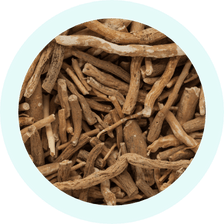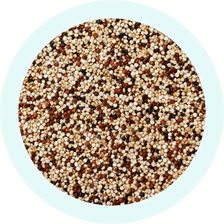Stress is something we all deal with, but have you ever stopped to think about how it really affects your body? It's not just about feeling frazzled or overwhelmed. Stress sets off a chain reaction in your body that touches just about every system, from how you process energy to how your cells function. The good news? Natural solutions, like adaptogens, might help us better handle these effects.
What Stress Does to Your Body
When you're stressed, your body's alarm system flips on. This stress-response system, driven by something called the HPA axis, pumps out hormones like cortisol to help you deal with whatever's happening. In small doses, this is super useful—it's what gets you through a tough work deadline or a workout. But when stress sticks around for too long, things can go haywire.
How Stress Messes with Energy
Your brain is a total energy hog, relying almost entirely on glucose to keep going. Cortisol, the main stress hormone, helps make sure your brain has enough fuel by boosting glucose production in your liver and storing glycogen. But there's a catch. In other parts of your body, like your muscles, cortisol actually blocks glucose from being absorbed, which throws off the balance (Kuo et al., 2013).
When stress becomes chronic, it can also mess with your pancreas, which produces insulin and glucagon. This can lead to higher blood sugar levels—something that's been linked to memory problems and even changes in the structure of the brain (Repple et al., 2019). Over time, this can seriously impact your overall health.
Stress at the Cellular Level
Stress doesn't just impact your organs. It gets right into those tiny engines (mitochondria) that power your cells. You know that foggy, drained feeling when you're under pressure? Yep, that's stress creeping in at a cellular level. Chronic stress and high blood sugar levels can throw off how mitochondria work, making them less efficient and causing more oxidative stress (Picard et al., 2018).
Why Some People Handle Stress Better
Ever notice how some people seem to bounce back from stress, while others struggle? That ability to stay steady is called resilience, and it's partly tied to how your body handles energy and stress hormones. Research has found that differences in things like glucose regulation can make a big difference in how well someone handles stress (Van der Kooij et al., 2018a). Learning what builds resilience is one of the most exciting areas of research.
What Are Adaptogens?
Here's where adaptogens come in. These are natural substances that help your body handle stress more smoothly. Scientists first defined adaptogens in the 1960s as substances that boost the body's resistance to all kinds of stress—whether it's physical, mental, or emotional—without causing harm or overloading the system.
A Peek into the Research
Adaptogens have been studied for decades, especially in the former USSR. One of the most well-known is Eleutherococcus senticosus, or Siberian ginseng. By the 1980s, researchers had conducted over 1,000 studies showing how adaptogens could:
- Boost mental and physical endurance during stress.
- Balance cortisol and glucose levels.
- Protect mitochondria and reduce oxidative stress.
Other popular adaptogens like Rhodiola rosea, Ashwagandha, and ginseng have also shown impressive benefits. For instance, they've been found to help lower cortisol levels, improve concentration, and increase overall resilience (Panossian & Wikman, 2010).
Why This Matters for You
We can't avoid stress—it's just a part of life. But the good news is, not all hope is lost when it comes to battling its effects. Your body has amazing ways of bouncing back, and adaptogens might just be one of your secret weapons. The research shows that these natural helpers can support your body's stress-response system. They balance energy, protect your cells, and help build resilience—all things that can make a huge difference in how you feel day-to-day.
Sure, there's still a lot to learn about exactly how adaptogens work, but the potential is exciting. They're a great example of how nature offers tools to help us handle life's pressures. Whether it's managing the stress of a hectic week or recovering from bigger challenges, adaptogens could be a game-changer.
Curious? Why not give our adaptogen blend capsules (For Him & For Her) a try and see how they make you feel? After all, feeling better and stronger is something we could all use more of.




















